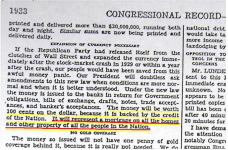- Messages
- 23,191
- Reaction score
- 4,281
- Points
- 288
^^^^^
Jeff S chimes in.
Feb 20, 2025
WTF!? This really better be a stunt or a bad joke because if it's not then we're faced with more bad economics. This proposal is exactly the SH&% that is supposed to be ending. The government wouldn't be giving anyone "their" money back, just borrowing more to make it look like that would what happens.
18:31
- Milton Friedman - Tyranny of the Status Quo - Part 1 - Beneficiaries w/ David Brooks • Milton Friedman - Tyranny of the Stat...
• Milton Friedman - Tyranny of the Stat...
- The Hill Adviser behind ‘DOGE dividend’ check program: It’s reasonablehttps://thehill.com/business/5154650-...
- Fox $5,000 DOGE check? Trump backs idea to send some savings to Americanshttps://www.fox9.com/news/5000-doge-d...
CBO
- https://www.cbo.gov/system/files/2025...
- https://www.cbo.gov/publication/60870....
Jeff S chimes in.
 Government Just Announced a New Stimulus – This DESTROY The Economy
Government Just Announced a New Stimulus – This DESTROY The Economy
Feb 20, 2025WTF!? This really better be a stunt or a bad joke because if it's not then we're faced with more bad economics. This proposal is exactly the SH&% that is supposed to be ending. The government wouldn't be giving anyone "their" money back, just borrowing more to make it look like that would what happens.
18:31
- Milton Friedman - Tyranny of the Status Quo - Part 1 - Beneficiaries w/ David Brooks
- The Hill Adviser behind ‘DOGE dividend’ check program: It’s reasonablehttps://thehill.com/business/5154650-...
- Fox $5,000 DOGE check? Trump backs idea to send some savings to Americanshttps://www.fox9.com/news/5000-doge-d...
CBO
- https://www.cbo.gov/system/files/2025...
- https://www.cbo.gov/publication/60870....




